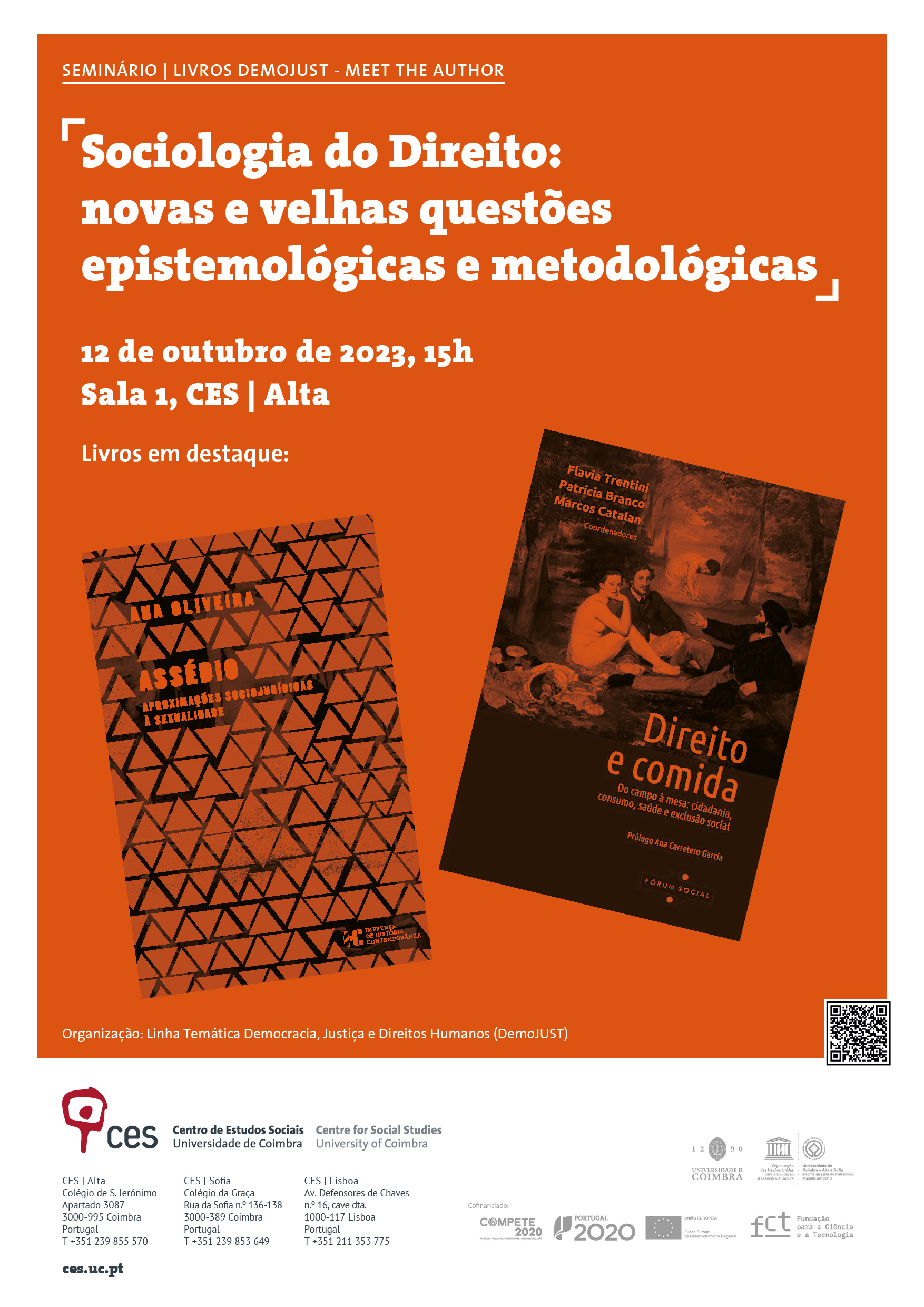Seminar | DemoJUST books - Meet the Author
Sociologia do Direito: novas e velhas questões epistemológicas e metodológicas
October 12, 2023, 15h00
Room 1, CES | Alta
Featured books:
Trentini, Flavia; Branco, Patrícia; Catalan, Marcos (eds.) (2023), Direito e comida: do campo à mesa: cidadania, consumo, saúde e exclusão social. [Law and food: from farm to fork: citizenship, consumption, health and social exclusion] Belo Horizonte: Fórum Publishing House
Synopsis: The Norse Edda tells us that Odin “drank nothing but wine”, pointing out, moreover, that he fed exclusively on the drink produced by fermenting the fruit of the vitis vinifera tree, a fact that may sound rather strange, since, barring better judgement, there was no noteworthy wine production north of the 60th parallel at the time when the Vikings sought to attain hidden pleasures in Asgard, dying bravely in Midgard.
Today, proportionally, we know that far fewer people die of hunger, which doesn't mean that humanity shouldn't be concerned about it and, of course, if there is an interest, politics will find its most appropriate instrument in law.
There are undoubtedly many connections between Law and Food; connections explored with a lot of flavour and affection throughout this book.
Oliveira, Ana (2022), Assédio: aproximações sociojurídicas à sexualidade [Harassment: socio-legal approaches to sexuality.] Lisbon: Contemporary History Press
Synopsis: Harassment is a category that has been gaining ground in contemporary normative debate, featuring on political-governmental agendas, in the repertoire of social activism and in academic-scientific production. In this book, harassment is seen as a device for observing the consensuses and cultural conflicts that the legal function (labour and criminal), the presumption about the subject (man or woman) and the status of sexuality pose for feminist theories and social studies of law. The author seeks to demonstrate to what extent and in what terms the increasing legal densification of harassment, instead of bearing witness to a cumulative and expansive logic of anti-patriarchal aspiration, highlights the vices and paradoxes that run through the way the field of sexuality is thought about, prescribed and protected, forcing a critical return to the subject, structure and law as unfinished objects and constituents of social life.


